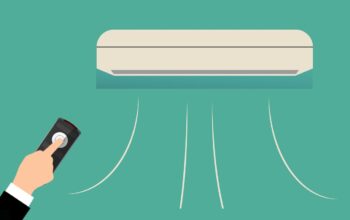Every modern home in Australia needs a hot water system to provide hot water for bathing, washing dishes and other daily tasks. However, if you have ever shopped for a water heater, you know how overwhelming it can be. There are many different styles, sizes and features within this category, so it can be challenging to decide which is best for your needs. Here’s an overview of the primary factors you’ll be looking at to help you narrow down your options.
Types of Hot Water Systems
In general, water heaters fall into four basic categories:
Electric
This water heater style utilises electrical power to generate the heat needed to warm the water. Within this style, you’ll be able to choose between varieties with tanks and those without, discussed in greater detail in the next section. The main benefit of electric hot water systems is that they are typically the most affordable, both for purchase and installation. Unfortunately, those savings may not be long-lived as electricity results in higher ongoing costs.
Gas
Gas hot water systems are popular across Australia due to their affordability. Costs for natural gas, which is used to heat the water in this style, tend to be significantly lower than those for electricity, so you can save a lot of money on ongoing operation. Gas water heaters are generally affordable to buy and install as well, assuming your home is already equipped with a natural gas line. Again, you’ll be able to choose a storage tank or instantaneous, tankless heater within this category.
Heat Pump
Heat pumps draw heat from the surrounding air into the unit to heat the water in the storage tank. Because of this, they are most efficient in areas with warm climates. There are also a couple of differences between heat pumps vs air conditioners that you should be aware of. They do still work in colder areas, though you may need an electric or gas booster for optimal heating on particularly cold days. In general, heat pump hot water systems are more expensive than electric or gas options, but you might be able to claim government incentives to help weather the cost. One important thing to note is that heat pump water heaters need to be installed outside, and they are known for being a bit noisy. Keep that in mind when choosing a location for yours.
Solar
Solar hot water systems are the most expensive of the four to buy and install. However, they have, by far, the lowest ongoing operating cost. Because you’ll be drawing energy from the sun to heat your water, you won’t need to rely on electricity or gas to power your system, which can save you a lot of money over the years. You may need a booster for days when the sun isn’t shining, though you hopefully won’t need to use it frequently.
While solar water heaters do include storage tanks like many of the other styles, they don’t heat the water within the tank itself. Instead, you’ll have large dark-coloured panels on your roof. Each panel is actually a pouch that can hold a thin layer of water. The exterior of the panel absorbs the heat of the sun, bringing it to the water inside. The water is then stored in the tank, with new water flowing into the panels to be heated.
Water Tank vs Instantaneous
As previously mentioned, with many water heater styles, you’ll be able to choose between storage tank and instantaneous configurations. A tank system is the more traditional variety and involves storing and heating water in a large tank. The amount of hot water your home can use will be limited by the size of the tank.
Tankless heaters, often called instantaneous hot water systems, only heat water on demand. They heat the water rapidly so hot water is always available when you need it. While you’ll enjoy continuous hot water for as long as you need it, you’ll typically only be able to get hot water to a single faucet at a time, so two people likely couldn’t shower at the same time in separate bathrooms. Tankless heaters are highly energy-efficient, so you stand to save on your electricity or gas bills.
Hot Water System Sizes
If you choose a water heater with a storage tank, you’ll need to determine the appropriate tank size. As you’d likely expect, larger tanks will come with higher price tags. They’ll also require more energy to operate. For someone who is single and lives in a small apartment, a compact water tank up to 100 litres will likely suffice. A family of four in a large home, on the other hand, would need a much larger tank. For this type of household, you’d likely need at least 150 litres of capacity in your storage tank to ensure you have enough hot water available for everyone in your home. Even larger families or multi-generational households might even need a tank that can hold several hundred litres.
Water Heater Brands
In addition to the wide range of water heater styles available, you’ll also have to choose from the numerous brands on the market. Canstar Blue has put together a rating system, evaluating brands on a variety of factors. Check out the results here to help you weigh the factors that are most important to you in choosing a hot water system.
Choose Your New Hot Water System
There are many factors to consider when calculating the cost of installing a hot water system. When you are ready to replace or upgrade your hot water system, Precise Plumbing is here to help. We’ll assist you in evaluating the cost of buying and installing your new system and weighing your water heater style options so you can choose the best hot water system for your property. Reach out to us today to get started.











